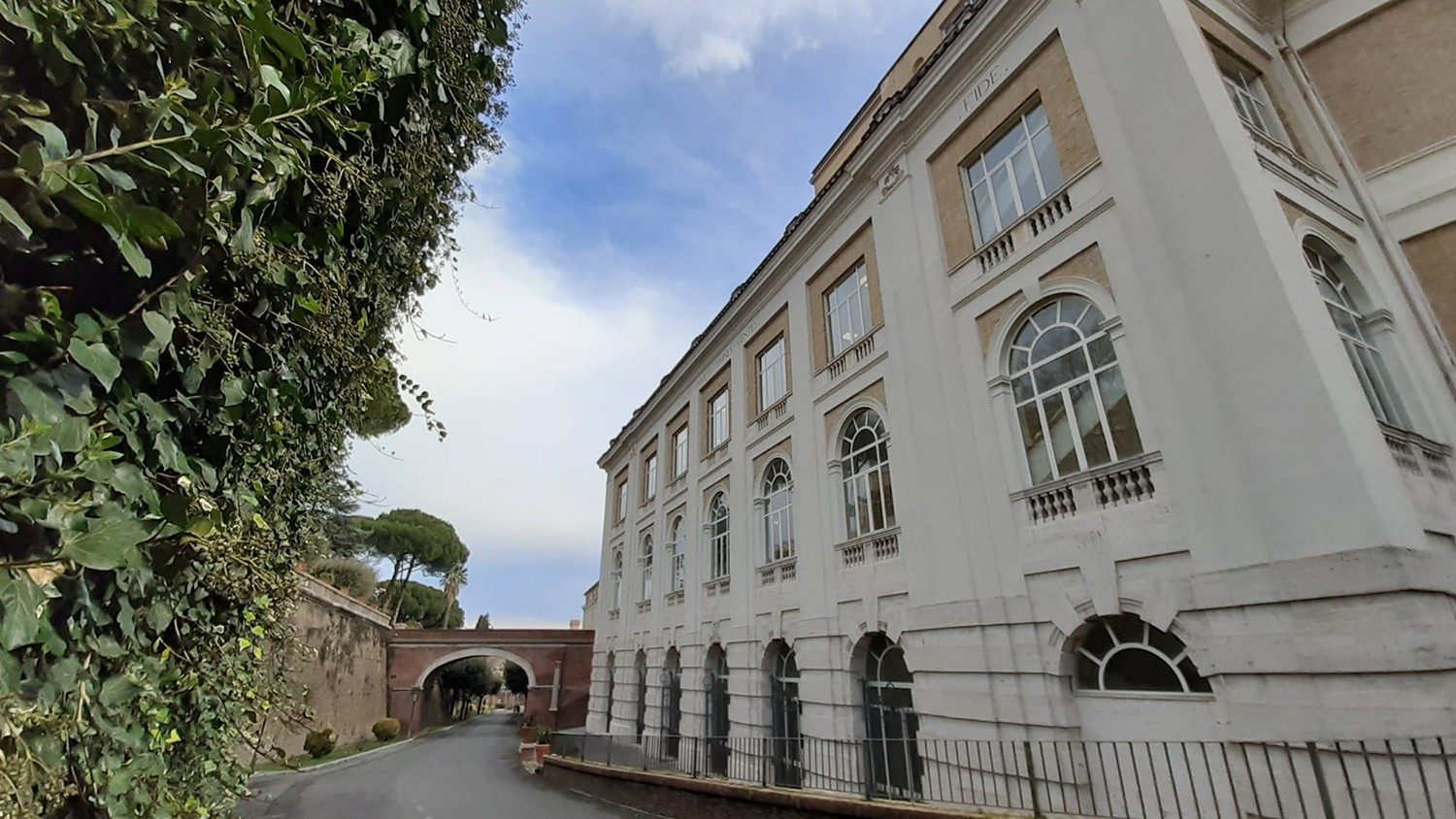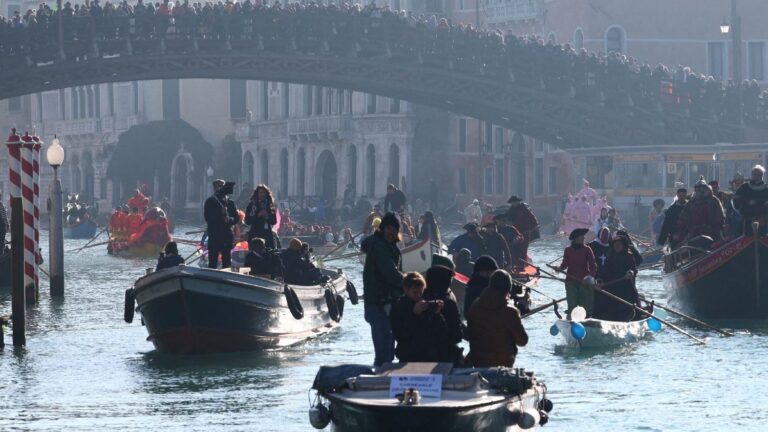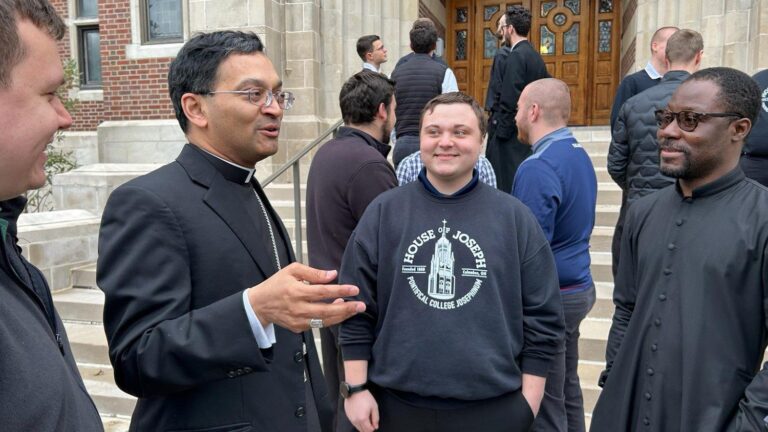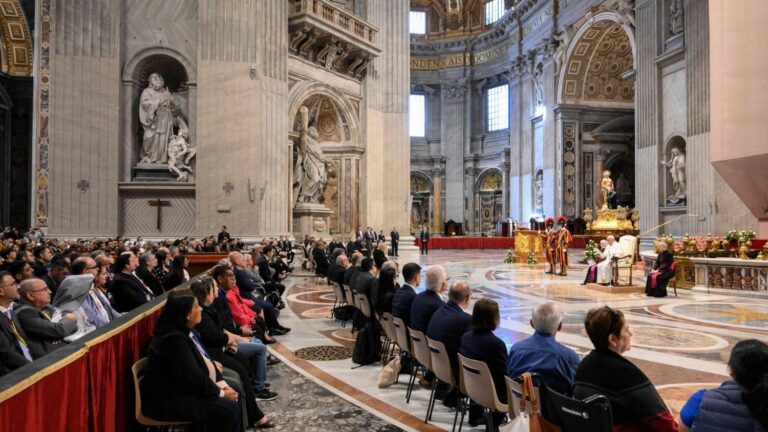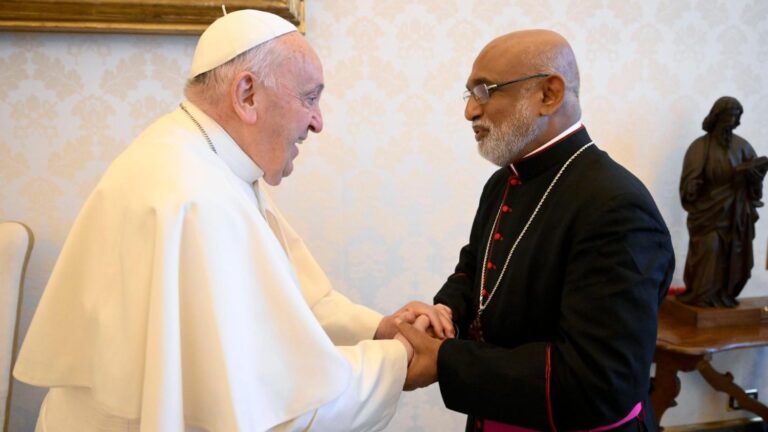Dicastery for Evangelization holds plenary on Pontifical Urbaniana University
The Dicastery for Evangelization is organizing a two-day extraordinary plenary assembly to discuss the future mission of the Pontifical Urbaniana University, which trains seminarians and priests for missionary dioceses around the world.
By Gianni Valente, Fides Agency
The Pontifical Urbaniana University is approaching an important crossroads in its long and unprecedented history.
On August 29 and 30, the members of the Dicastery for Evangelization (Section for Early Evangelization and New Particular Churches) are participating in Rome in an “Extraordinary Plenary Assembly”, convened ad hoc and with a single point on the agenda.
Cardinals, bishops, clergy and missionaries from five continents will share two intense days dedicated to reflections, reports and debates on the identity, mission, expectations and future of the institution founded almost four hundred years ago by Pope Urban VIII to support the Churches of the whole world in their apostolic work of proclaiming the Gospel.
The Plenary is part of the perspective of a revival of university institutions linked to the Holy See as requested on several occasions by Pope Francis, also through the Apostolic Constitution. Veritatis Gaudium on ecclesiastical universities and faculties.
The Plenary Assembly is an intermediate stage of a shared ecclesial discernment around the present and future path of the Pontifical Urbaniana University.
A process of synodal discussion was launched some time ago by the Dicastery in communication with the local Churches. 26 Episcopal Conferences of the Churches present in the relevant territories of the Missionary Dicastery (in particular in Asia and Africa) have sent considerations, proposals and expectations on the criteria to be followed and on the operational choices to be adopted to make the service rendered to the local ecclesial communities by the Pontifical Urbaniana University ever more effective.
After the introductory speech by Cardinal Luis Antonio G. Tagle, Pro-Prefect of the Missionary Dicastery and Grand Chancellor of the Pontifical Urbaniana University, the contributions and desires coming from the episcopates will be at the center of the synodal working sessions of the plenary, hosted at the headquarters of the University.
Identity, history and future
The Pontifical Urbaniana University has a fascinating and unique history, viscerally linked from the beginning to the events of the Congregation of Propaganda Fide (which today corresponds to the section of the Dicastery for Evangelization led by Cardinal Tagle).
The Janiculum University is the only institution of its importance that has been recognized for centuries as an integral and structural part of a Dicastery of the Holy See, also from the point of view of costs.
Most of the students who take courses at the Pontifical Urbaniana University also benefit from scholarships funded by the Missionary Dicastery. And among the intuitions that led to its foundation, one can still perceive traces of clairvoyance and prophecy.
The Urban College, the first nucleus of what is today the Pontifical Urban University, was founded as early as 1627 to train the personnel of the local Churches for the mission of proclaiming the Gospel in their respective ecclesiastical districts.
The aim was to provide seminarians, priests and nuns with intellectual, pastoral and spiritual tools useful for carrying out their mission in the service of their respective Churches of origin.
Already before the middle of the 17th century, in the headquarters of the historic building on the Spanish Steps (which today houses the Missionary Dicastery), students from territories directly dependent on Propaganda Fide resided and followed courses in Latin, among languages and cultural visions of diverse origins, united in faith.
In its immanence in the history of the Congregation of Propaganda Fide, the Pontifical Urbaniana University has also assumed the genetic connotations that make it a “global” institution, continually striving to reconcile the unity of the Catholic faith with the diversity of cultures, political forms, civilizations, languages.
The multitudes of students that the Urban College and the Pontifical Urbaniana University have brought to Rome from their respective countries, without disrupting their cultures, can also be considered an extraordinary experience, “a contribution to mutual understanding and respect between peoples and cultures” (Gianpaolo Romanato), begun centuries before the “Erasmus” programs now implemented by modern academic institutions.
Guiding criteria for the new stages
The reason for being of the Pontifical Urbaniana University and the unlimited horizons towards which it looks for the missionary vocation do not seem to have tarnished or shrunk.
It would be enough to have a vague idea of the incessant missionary magisterium of Pope Francis, of the constant call to “missionary conversion” that he continually addresses to all ecclesial instances.
It is precisely its importance for the missionary dynamism that continues to mark in a specific and non-comparable way the nature of the Pontifical Urbaniana University, and this can also suggest more appropriate operational criteria and choices to relaunch and reorient its service to the local Churches, recognizing what is now most useful and fruitful for their mission.
The participants in the Plenary will be able to discuss the criteria and proposals for renewing the tools, methodologies and academic procedures, as well as the areas of study to be valued in order to accentuate and apply the attention to contexts and the attitude of listening to local cultures – which have always characterized the academic and educational commitment of the Urbaniana – to the present.
The number of study and research centres focused on specific fields and teaching themes can be expanded, along the lines of the Centre for Chinese and Asian Studies already operational at the Urbaniana since 1975. New resources, sometimes latent, such as the relationship with the network of 106 Institutes and Study Centres affiliated or connected in various ways to the Pontifical University, can be enhanced and relaunched in new ways.
Centers and Institutes scattered in over 40 countries of the world, which also represent precious channels of contact and constant communion between the academic community of Urbaniana with the local Churches and their institutions of study and formation.
A redevelopment that has already begun
During the working sessions, the first effects of the phase of renewal and reorientation of the training offer begun last year will also be presented and evaluated, since in September 2023 Pope Francis appointed Professor Vincenzo Buonomo Pontifical Delegate for the Pontifical Urbaniana University, with the functions of Magnificent Rector.
In the decree appointing Professor Buonomo, Pope Francis also referred to the urgency of “reviewing the structure of the University and conforming to the Apostolic Constitution.” Veritatis Gaudiumthe Statutes and other regulatory provisions that govern the life of the Faculties and Institutes, as well as to provide for the alignment of the administrative organization with the legislation in force for the Organs of the Holy See.”
The Pontiff also recalled the process already underway which “aims to reorganize the Roman pontifical academic institutions directly administered by the Apostolic See.”
The reorganization work undertaken has translated into concrete measures the call to seek operational structural synergies above all (but not only) with the network of other pontifical universities in Rome, avoiding the risk of wasting precious energies and resources (for example, avoiding perpetuating “duplicate” teaching and academic paths already operational in other pontifical universities).
These guidelines refer, among other things, to the strengthening of the Faculty of Missiology (the only one still active within the Pontifical Universities of Rome) and to the focus of the courses of the Faculty of Canon Law on the field of “missionary law”, at the service of the new Churches.
The process of reconfiguration initiated within the Pontifical Urbaniana University is also illustrated by some comparative data.
At the beginning of October 2023, 62 “full” professors and 113 “assistant” or “guest” professors were working at the University. Staff numbers that were significantly reduced, after verifying their uselessness in addition to the low number of students attending many courses.
At the beginning of the next academic year, Urbaniana will have 47 full professors and 40 associate or visiting professors. As for the overall management of the University, the forecast budgets for 2025 foresee a cost reduction of 1,514,180 euros.
Participants in the Plenary will be received at the papal audience by Pope Francis on the morning of Friday, August 30.
